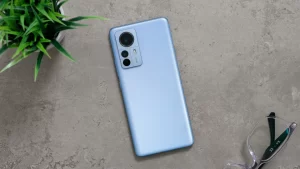Understanding your needs and priorities is the first and most crucial step when choosing a new smartphone. Smartphones come in a variety of models, each with unique features, specifications, and price points. Before you dive into the sea of options, take a moment to think about what you need in your phone. Are you looking for a powerful camera, longer battery life, a large display, or fast response times? Perhaps you are more concerned with finding a gadget that fits your budget without sacrificing essential functionality. By setting priorities, you will have a phone that fits your lifestyle and can narrow down your choices.
1. Set a Reasonable Budget
Buying a new smartphone largely depends on setting a budget. Smartphones range from affordable budget models to expensive premium flagships. Understanding your willingness to spend money will help you weed out the phones that are out of your budget and focus on the phones that offer the best value in the range. One needs to strike a balance between functionality and economy. By researching different models within your budget, you can find a phone that performs well without spending a lot of money, as higher prices don’t always guarantee better quality.
2. Select an Operating System
Another important decision when buying a smartphone is choosing an operating system. The two major operating systems, Android and iOS, offer different experiences. Android phones are characterized by flexibility, customization, and a wide range of brands and price points. Therefore, iOS offers a perfect and user-friendly interface, especially if you already own other Apple products such as iPad, Mac, or Apple Watch and are therefore involved in the Apple ecosystem. Understanding the pros and cons of each operating system and how they fit into your current technology setup will help you make a choice based on your preferences.
3. Evaluate Camera Performance
Many buyers prioritize the camera quality of their smartphones. As smartphone cameras become more advanced, the differences between mobile photography and traditional cameras continue to diminish. When evaluating camera quality, consider factors like aperture, sensor quality, and the presence of additional lenses (including ultra-wide, telephoto, or macro lenses) before considering megapixel count. The overall quality of a camera also depends heavily on features like optical image stabilization, low-light performance, and advanced image processing software. If photography is important to you, taking the time to review camera samples and reviews can help you choose a phone that meets your needs.
4. Evaluate Charging Speed and Battery Life
One of the most important factors that impact everyday smartphone usage is battery life. Choosing a phone with solid battery life is crucial because no one wants to be tethered to a charger all day. Look for models with a battery capacity of at least 4,000 mAh, which is usually enough for a full day of moderate use. In addition to battery life, consider how quickly your phone charges. Fast charging, wireless charging, and battery optimization settings will greatly improve your overall experience and help reduce the wait time for your phone to charge.
5. Processing Power and Performance
A smartphone’s processor, RAM, and storage choices largely determine its performance. Powerful CPUs in high-end phones can handle gaming, multitasking, and other demanding tasks with ease. If you regularly use heavy apps, play games, or multitask on your phone, investing in a device with a powerful chipset and sufficient RAM (at least 6GB or more) is crucial. For regular consumers who primarily use their phones for browsing, social media, and communication, mid-range processors are usually more than sufficient. Knowing your performance requirements can help you choose the perfect phone without a lag.
6. Buildability and Durability
A sometimes overlooked but crucial part of the buying process is the build quality of your smartphone. A phone that feels sturdy and well-made will not only look great but will also withstand the wear and tear of everyday use. Consider factors such as material (metal, glass, plastic), water and dust resistance (such as IP67 or IP68), and whether the phone has additional protection (such as Gorilla Glass). A sturdy phone is especially important if you plan to use it in rough environments or if you accidentally drop it. Buying a well-made mobile phone ensures that it can handle the demands of everyday life.
Conclusion
Ultimately, choosing a new smartphone requires careful evaluation of many factors, including performance and budget, as well as camera quality and battery life. Finding the ideal device depends on understanding your needs, researching your options, and prioritizing the most important features. Whether you’re looking for a budget phone that does the basics or a flagship model with cutting-edge technology, making an informed choice is sure to leave you satisfied with your purchase. Choosing the right smartphone is a decision worth making because it’s more than just a gadget; it’s an everyday friend that keeps you connected, productive, and entertained.
FAQs
1. What factors should I consider when deciding on a new smartphone?
Factors to consider when choosing a new smartphone include your budget, preferred operating system (Android or iOS), camera quality, battery life, performance features (processor, RAM), display quality and size, storage capacity, building durability, and availability of software updates. Understanding your priorities in these areas will help you choose the phone that best suits your needs.
2. How should I budget for my smartphone?
Analyze your willingness to spend and balance this with the features you need to determine your smartphone budget. Consider how often you update your phone and whether you’d rather spend money on a more affordable device that meets your basic needs or a more expensive model with the latest technology. Creating a budget will help you find a phone that’s worth your money and help you narrow down your choices.
3. What should I look for when shopping for a smartphone camera?
When evaluating smartphone cameras, consider factors like megapixel count, aperture size, sensor quality, and additional lens options (ultra-wide or telephoto). In addition to overall camera quality, there are features like optical image stabilization, low-light performance, and advanced image processing software. Checking camera reviews and sample images can help you judge whether a phone’s camera will meet your needs.
4. How is smartphone battery life crucial?
Battery life is important because it determines how long you can use your smartphone before recharging. With longer battery life, your phone can go all day without interruption. To improve your overall experience, look for a phone with a battery capacity of at least 4,000 mAh and wireless or fast charging capabilities.
5. How does the operating system influence the smartphone people choose?
Your smartphone experience largely depends on the operating system (OS). iOS offers a user-friendly, integrated experience, especially if you use other Apple products, while Android offers customization, flexibility, and a wide range of devices. The OS you choose will affect application usability, user interface, and overall device compatibility. So consider which OS suits your taste and current technology scenario.




